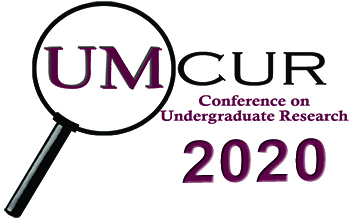Project Type
Presentation
Faculty Mentor’s Full Name
Lauren Collins
Faculty Mentor’s Department
Davidson Honors College
Abstract / Artist's Statement
David Orr, in an article on ecological intelligence reminds us that the modern world was shaped by people who did not understand that our social and economic systems could not coexist with the rest of the biological or natural systems on Earth (Orr, 1994). My research is rooted in Orr’s argument and discovering ways to shift this degrading paradigm. With my belief in the power of education in empowering youth and my background in environmental and climate change studies, I see a future in great need of people who holistically understand the functions of all types of systems and can use that understanding to drive intelligent and innovative interactions with them. The purpose of the study was to gain insights from educators around Missoula County in Montana about their perception of systems thinking principles and methods and its role in classroom learning. A mixed-method, 16-question survey was distributed out to K-12 educators around Missoula from various elementary, middle and high schools as well as a few independent schools. The responses suggest that although the majority of educators believe systems-thinking integrated into the classroom is important, many either don’t understand it or can’t move beyond an abstract understanding. It also suggests that some educators utilize systems-thinking methods for classroom activities but don’t necessarily identify it as such. Based on these findings, more research is recommended to confirm and compare the data to other schools around the country with the same standards and with other countries with different standards. The next step is to explore how to successfully integrate systems-thinking principles into the standard classroom setting, which may include additional teacher training and adjusted standards, and continuing to evaluate its outcome on students understanding, decision-making, and critical-thinking in the face of climate change.
Category
Humanities
The Great Turning: A Call for Systems Thinkers
David Orr, in an article on ecological intelligence reminds us that the modern world was shaped by people who did not understand that our social and economic systems could not coexist with the rest of the biological or natural systems on Earth (Orr, 1994). My research is rooted in Orr’s argument and discovering ways to shift this degrading paradigm. With my belief in the power of education in empowering youth and my background in environmental and climate change studies, I see a future in great need of people who holistically understand the functions of all types of systems and can use that understanding to drive intelligent and innovative interactions with them. The purpose of the study was to gain insights from educators around Missoula County in Montana about their perception of systems thinking principles and methods and its role in classroom learning. A mixed-method, 16-question survey was distributed out to K-12 educators around Missoula from various elementary, middle and high schools as well as a few independent schools. The responses suggest that although the majority of educators believe systems-thinking integrated into the classroom is important, many either don’t understand it or can’t move beyond an abstract understanding. It also suggests that some educators utilize systems-thinking methods for classroom activities but don’t necessarily identify it as such. Based on these findings, more research is recommended to confirm and compare the data to other schools around the country with the same standards and with other countries with different standards. The next step is to explore how to successfully integrate systems-thinking principles into the standard classroom setting, which may include additional teacher training and adjusted standards, and continuing to evaluate its outcome on students understanding, decision-making, and critical-thinking in the face of climate change.
